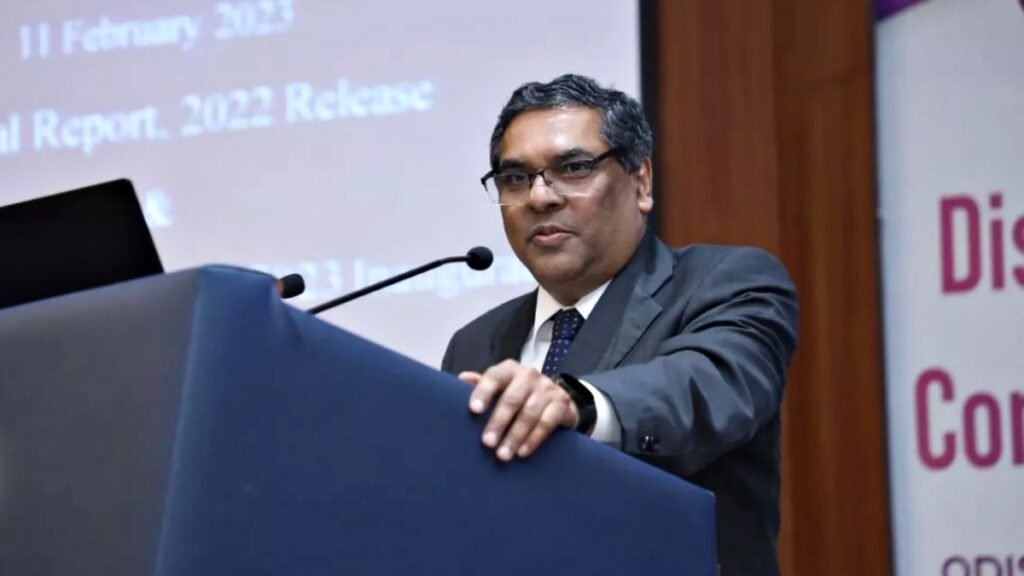
New Delhi: With a promise to make India’s judicial system more accessible and user-focused, Justice Sanjiv Khanna has taken his oath as the 51st Chief Justice of India. In a ceremony officiated by President Draupadi Murmu, Justice Khanna outlined a progressive, citizen-centered vision aimed at transforming the courts into more approachable institutions, addressing backlogged cases, and streamlining complex legal processes to make justice more affordable for all.
In his first address as Chief Justice, Justice Khanna emphasized the judiciary’s critical role as an independent pillar within India’s democratic governance. “The judiciary is an integral, yet separate and independent part of the governance system. The Constitution entrusts us with the duty of safeguarding fundamental rights and delivering justice,” he declared, affirming his commitment to uphold the responsibilities of the nation’s “constitutional guardian.”
A New Era of Reforms and Accessible Justice
Justice Khanna’s agenda focuses on key reforms to improve the efficiency and accessibility of the judiciary. He highlighted the need for an effective self-evaluation approach within the courts, which would allow the judiciary to be more receptive and responsive to public feedback. Simplifying judicial language in court judgments, promoting mediation to resolve disputes amicably, and encouraging citizens’ understanding of legal decisions are among his top priorities.
“Our responsibility as protectors of citizens’ rights is clear: to ensure access to justice is not just a right but an accessible reality for every citizen,” Justice Khanna stated, underscoring the importance of reforms that minimize the burden of legal proceedings on the public.
Focus on Criminal Case Reforms and Systematic Trial Management
Chief Justice Khanna also addressed the urgent need for better management of criminal cases, where lengthy trials often delay justice. By implementing a more systematic approach to handling criminal cases, he hopes to reduce trial durations and mitigate the challenges faced by citizens navigating India’s judicial system. This reform will aim to ensure that “the process of law does not become a pain for citizens,” signaling his commitment to making legal proceedings smoother and more efficient.
A Distinguished Career of Legal Service and Advocacy
Justice Khanna, who succeeds Justice D.Y. Chandrachud, brings an impressive legal background to the office. His six-month term as Chief Justice is set to conclude with his retirement on May 13, 2025. Born on May 14, 1960, Justice Khanna began his career as an advocate with the Delhi Bar Council in 1983, practicing initially at Tis Hazari district courts and then moving on to the Delhi High Court and various tribunals.
Over the years, he served as senior standing counsel for the Income Tax Department and later as standing counsel (civil) for the National Capital Territory of Delhi in 2004. His judicial career took a significant step forward in 2005 when he was appointed as an additional judge of the Delhi High Court, becoming a permanent judge the following year. Justice Khanna was elevated to the Supreme Court on January 18, 2019, where he has since established a legacy of impartiality and dedication to the Constitution.

Vision for a Transparent and User-Friendly Judiciary
Justice Khanna’s appointment marks a new chapter for India’s judiciary, one that places the rights and needs of the citizenry at the forefront. His vision of a “responsive and user-friendly judiciary” is expected to bring lasting changes that enhance transparency and promote fair dispute resolution, ensuring that the judiciary remains a cornerstone of democracy accessible to all.
As he takes the helm, Chief Justice Khanna’s progressive approach promises not only to safeguard the judiciary’s independence but to foster a legal system that is truly reflective of citizens’ needs and aspirations in modern India.
















































